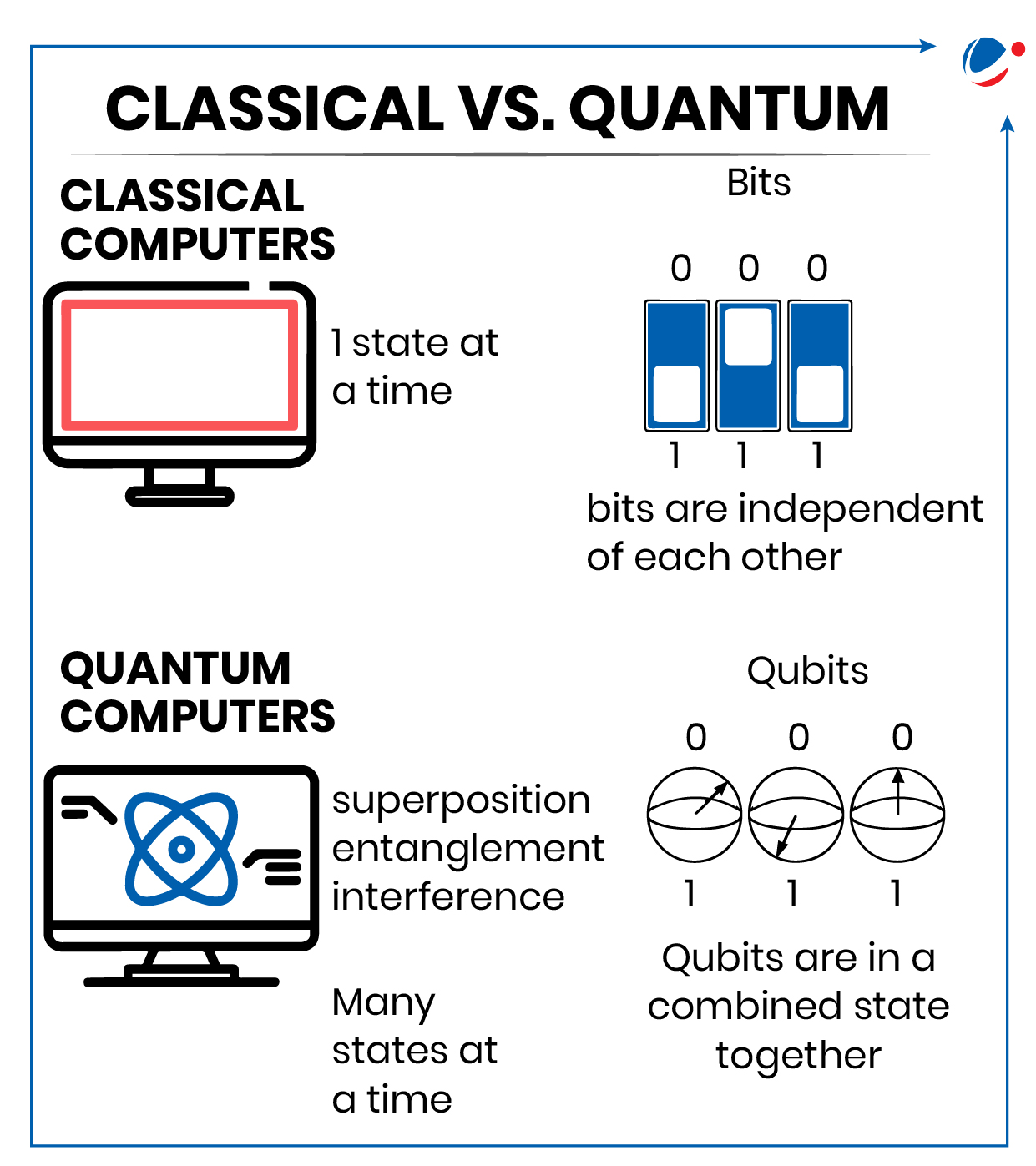Why in the News?
Google unveiled Willow, its latest quantum chip, marking a milestone in the development of quantum computing.

More on the News
- Willow has state-of-the-art performance on the random circuit sampling (RCS) benchmark, enabling two major achievements.
- First, Willow can reduce errors exponentially as systems scale up using more qubits.
- Second, Willow performed a standard benchmark computation in under five minutes that would take one of today's fastest supercomputers 10 septillion (that is, 1025) years.
- Willow has also shown improved coherence time (expresses the length of time a qubit can maintain its quantum state).
About Quantum Chips
- While regular chips use 'bits' (O or 1) to process information, quantum chips use 'qubits'.
- A classical bit can only exist in either a 0 position or a 1 position. Qubits, however, can also occupy superposition, which represents 0, 1, and all the positions in-between taken at once, for a total of three separate positions.
- While qubits can encode three separate positions, they are still used to convey information through a binary system.
- Also, two quantum bits can be correlated with each other so that the state of one quantum bit is dependent on the state of another quantum bit (Entanglement).
- Like a classical computer, a quantum computer is also a host of physical operations called quantum gates that change the states of qubits to perform calculations.
- In a classical computer the information flowing in and out of bits is controlled and manipulated by physical operations called gate operations. For example, an 'AND' gate accepts two inputs, each either 0 or 1, and outputs 1 if both inputs are 1 and 0 for any other combination of inputs.
Quantum computing's impact on emerging technologies
|
Challenges
- Fragile Quantum States: Qubits are extremely sensitive and collapse easily with slight disturbances, limiting how long they can store information and how scalable quantum computers can be.
- Noise Problem in Qubits: Qubits are highly prone to interference and can lose information easily. Even with millions of qubits, many would be redundant, making the system inefficient.
- Temperature Control: Qubits must be cooled to near absolute zero to prevent disturbances that can cause calculation errors.
- High Cost: Quantum systems need many expensive coaxial cables and complex CMOS control systems, making it difficult to scale for business needs.
- Chip Supply Chain Issues: Disruptions like pandemics, trade wars, and natural disasters have impacted chip production.
Conclusion
Advancing quantum computing requires focused research on using semiconducting materials like silicon, gallium, or germanium for more efficient qubits. Global collaboration through initiatives like the Quad Critical and Emerging Technology Working Group, the Quad Investors Network (QUIN), Quantum Center of Excellence in Quantum Information Sciences etc. and increased investment are crucial due to high costs. Clear policies and regulations must guide the technology's use and growth. Lastly, developing talent across quantum theory, physics, and computer science is essential for progress.






